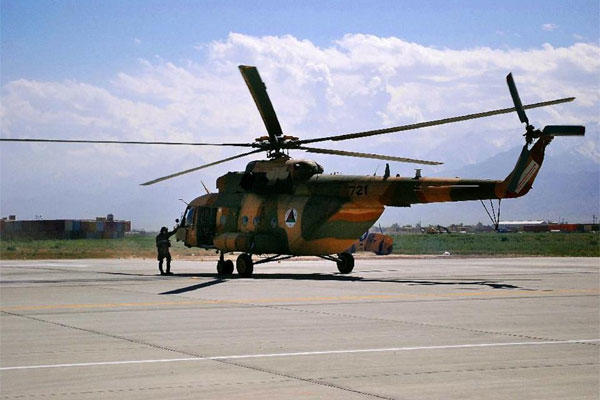A Kurdish relief helicopter crashed Tuesday after picking up Yazidi refugees stranded in the Sinjar Mountains, killing the pilot and injuring veteran New York Times war correspondent Alissa J. Rubin.
In its report on the incident, The Times said that Rubin, 56, who has filed vivid dispatches for years from Iraq and Afghanistan, appeared to have suffered a concussion, a broken wrist and possibly broken ribs.
Adam Ferguson, a free-lance photographer for the Times who accompanied Rubin on the relief mission, said the Russian-made helicopter with a four-man Kurdish crew flipped over just after liftoff and crashed upside down, killing the pilot.
Ferguson, who suffered minor injuries, said "If we had been another 50 meters higher we'd all be dead," the Times reported. Kurdish officials said two other relief helicopters took the injured to safety.
The crash casualties appeared to be among the first in the relief operation to rescue thousands of members of the Yazidi sect trapped on the Sinjar mountains in northern Iraq by the extremists of the Islamic State of Iraq and the Levant.
There was no immediate indication that the helicopter may have been hit by ground fire.
At the Pentagon, officials said U.S. aircraft have yet to encounter any anti-aircraft fire in the airstrikes and airdrops of relief supplies carried out since last Friday.
If the ISIL fighters took any anti-aircraft systems from the fleeing Iraqi army, they have yet to employ them, said Army Col. Steve Warren, a Pentagon spokesman.
U.S. pilots also have not reported encountering any shoulder-fired missiles, or "manpads," said Warren, who noted that "we never gave any manpads to the Iraqis" in any shipment of arms to the Iraqi security forces.
Since last Friday, U.S. aircraft have carried out a total of 17 airstrikes and airdropped 290,000 pounds of relief supplies, Warren said.
Four airstrikes on Monday focused on ISIL fighters around Mount Sinjar, the U.S. Central Command said. Four ISIL checkpoints and multiple ISIL vehicles near Sinjar Mountain were hit "in defense of internally displaced Yazidi civilians in the area," CentCom officials said.
Western reporters in accounts from Sinjar have described the conditions for the Yazidis as increasingly desperate in plus 100-degree heat without food and water.
Britain reportedly was considering sending Chinook helicopters to take the refugees off the mountain but Warren indicated that a similar move by the U.S. was not imminent.
"We'd need to know more about specifically what's happening on the ground" before sending helicopters or Osprey tilt-rotor aircraft to rescue the Yazidis, Warren said.
The U.S. was also focused on the political crisis in Baghdad, where Prime Minister Nouri al-Maliki was resisting the move by Parliament to replace him with another Shiite, the British-educated former Communications Minister Haider al-Abadi.
Maliki had surrounded himself in Baghdad's "Green Zone" with Iraqi Special Forces troops, but appeared to be easing his stance on Tuesday after Iran, one of his main backers, issued a statement of support for Parliament's action.
Maliki later issued a statement urging Iraqi troops "not to intervene in this crisis. Leave this issue to the people, politicians and justice."
-- Richard Sisk can be reached at richard.sisk@monster.com


























